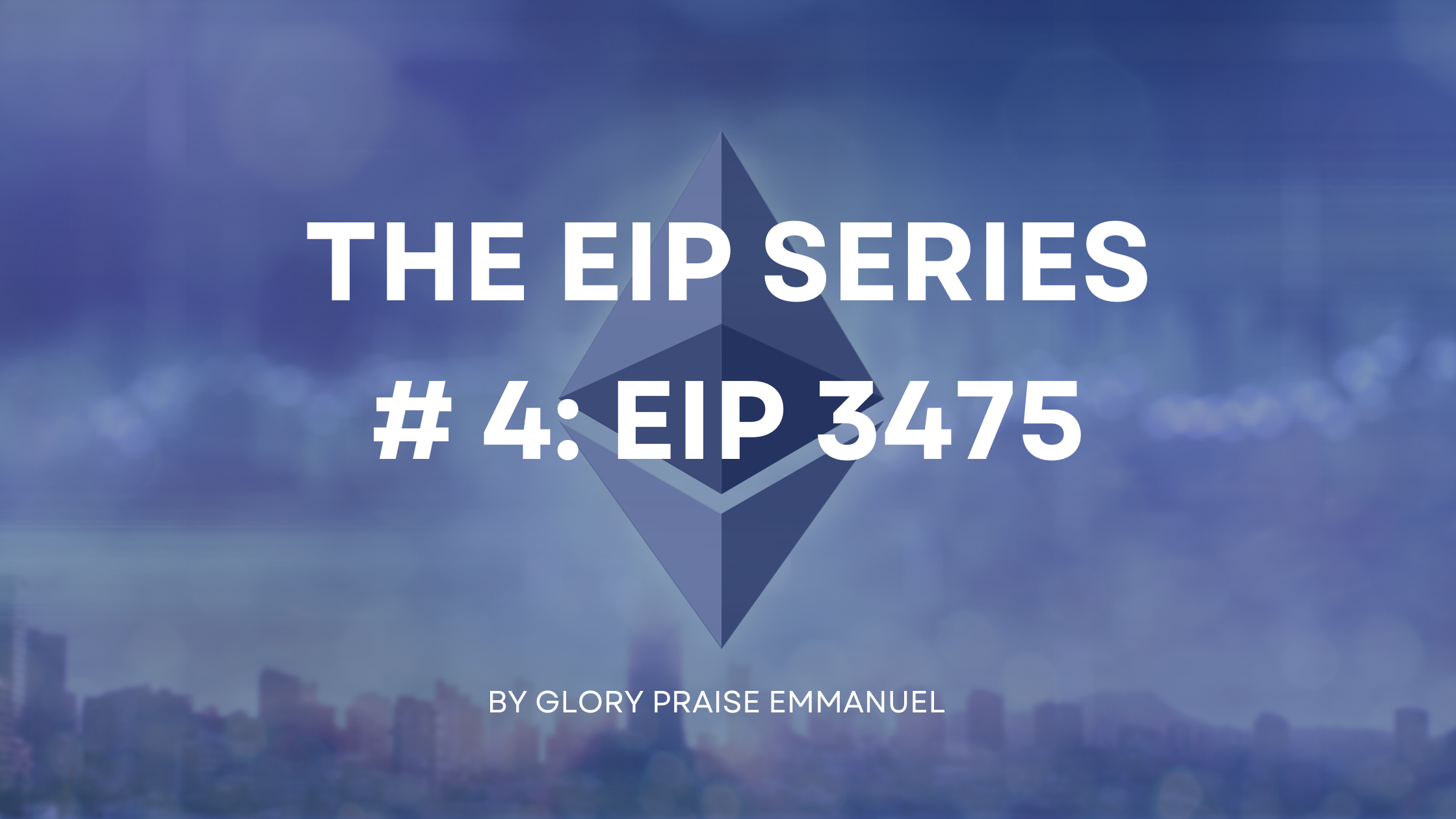EIP - 3475: Abstract Storage Bonds
 Glory Praise Emmanuel
Glory Praise Emmanuel
The Ethereum network currently charges gas fees for every operation that modifies the storage space. This includes storing and retrieving data. The cost of these operations increases with the size of the data structure, which can be prohibitively expensive for larger data structures.
The ERC-3475 standard will enable individuals and institutions to issue bonds and derivatives in secondary markets. The existing ERC-20 standard is incompatible with issuing various classes of bonds. Also, it doesn’t allow storage of reward and redemption logic on-chain. This leads to higher gas fees.
Introduction
EIP-3475, commonly referred to as "Abstract Storage Bonds," is an improvement to the Ethereum blockchain that has been proposed. This proposal's main goal is to make it possible for anyone to create custom-made bonds on Ethereum. Due to the limitations of current token standards, it has been impossible to issue fixed-rate instruments on blockchains until now. The ability to hold all the specifications (metadata, values, and transactions) without the requirement for external storage, either on-chain or off-chain, is the reason for the standard's name, "abstract storage bond."
Batch operations are supported by this EIP. It allows the user to instantly move different bonds and their metadata to a new address in a single transaction. Following the execution, each bond's face value may be reclaimed by the new owner. With the use of this method, bonds can be "packaged," which is useful in situations like trades on a secondary market.
The multilayered pool in AMM is one of the most obvious use cases for this EIP. By creating a large liquidity pool with all the pairings inside using this EIP standard, one may save needless gas spent and slippage.
Key Features of EIP-3475
Several token IDs are supported
It is gas-efficient.
On-chain metadata can be stored
There is no fixed storage pattern
Advantages
Enhanced security for contract storage
Lower cost of contract storage management
Greater flexibility in contract storage management
This EIP allows the creation of any bond with the same interface.
Since a bond class's or nonce's metadata is saved as an array of JSON objects. Any third-party wallet software or exchange will be able to read the balance and redemption terms of these tokens.
These bonds can also be batched as tradable instruments with abstract storage bonds. Then, in secondary markets, those instruments can be split up and traded. For efficiency on the gas cost and UX side, bonds produced by this EIP can also be batched for issuance/redemption conditions.
Drawbacks and Challenges
EIP-3475 may have the drawback of adding another level of complexity to the Ethereum network. Developers will need to comprehend the operation and effective usage of abstract storage bonds. For developers who are unfamiliar with the idea of abstract storage bonds, this may call for further training and materials.
The fact that abstract storage links might not be appropriate in all situations is another potential drawback. The cost reductions from using abstract storage bonds must be weighed against any potential drawbacks, such as greater complexity and decreased flexibility.
Conclusion
EIP-3475 is an important proposal that addresses the cost of storing bond data in the Ethereum network. By introducing abstract storage bonds, developers can prepay for future storage costs, which lowers the immediate cost of storing data in the Ethereum network. Although there may be some drawbacks, employing abstract storage bonds has several advantages, especially for developers who need to store big or intricate data structures in the Ethereum network. As the Ethereum network continues to evolve, it is likely that we will see further innovations that address the cost and complexity of building DApps and smart contracts on the Ethereum network.
Subscribe to my newsletter
Read articles from Glory Praise Emmanuel directly inside your inbox. Subscribe to the newsletter, and don't miss out.
Written by

Glory Praise Emmanuel
Glory Praise Emmanuel
Glory Praise Emmanuel is a Frontend Engineer, Technical writer and Blockchain Developer based in Nigeria. She is passionate about providing solutions with technology and making the world a better place. She is interested in Open Source and community building.